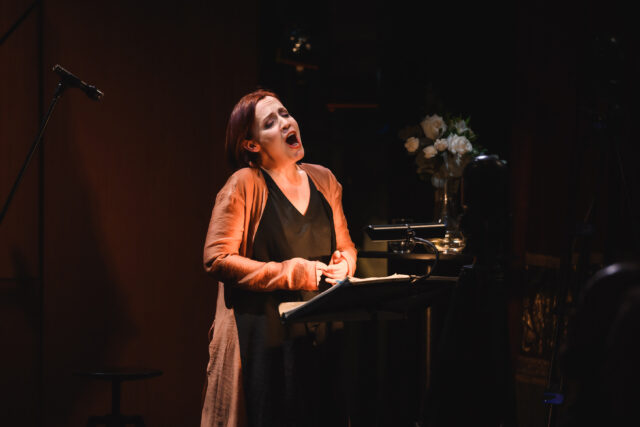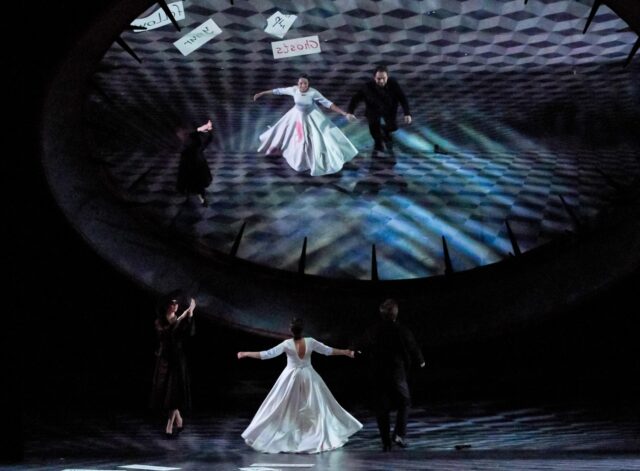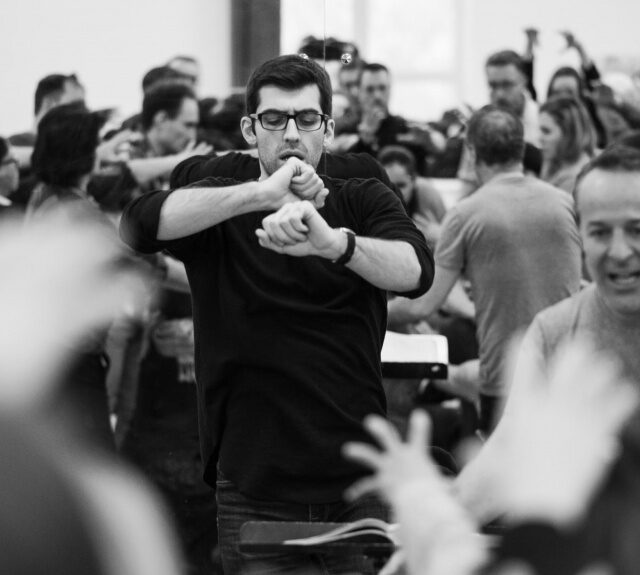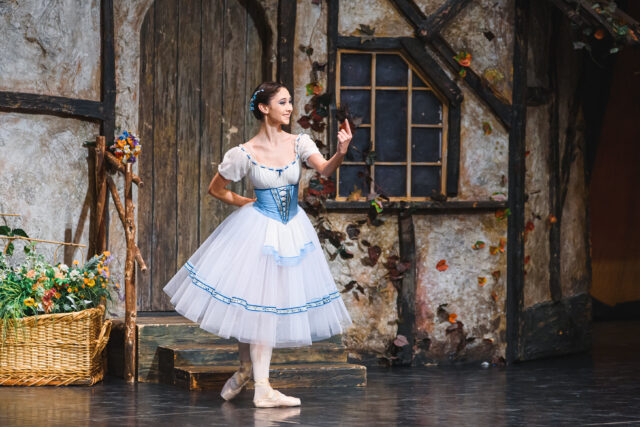Prima Ballerina Natalia Domracheva returns to the Bord Gais Energy Theatre this November where she will perform leads in Romeo & Juliet and Swan Lake with the Tchaikovsky Perm State Ballet, accompanied by the RTÉ National Symphony Orchestra. It is a welcome return following her previous 2013 performances of Romeo & Juliet and The Nutcracker. Ahead of the shows this November, Andrew Darley chatted with Natalia about her love of these lead roles, the discipline of ballet and the myths which surround ballerinas.
— You are coming to Dublin in November to perform the lead in both Romeo and Juliet and Swan Lake, which are both classic works of literature and the stage. What was your relationship to them before taking on these roles?
— When I first saw the Romeo and Juliet production choreographed by Sir Kenneth Macmillan, I fell in love with it at once. Shakespeare’s work couldn’t be expressed by dance more beautifully than how Sir Macmillan did it! It was my dream to dance the part of Juliet someday. It came true in 2012 when the production premiere took place at the Perm State Opera and Ballet Theatre. Swan Lake is probably the most popular classical performance. Every ballet dancer has a dream to dance Odette and Odile.
Two absolutely different images, the most complicated technique to show the true mastership of a ballet dancer! That’s why Swan Lake remains for us one of the most difficult works and it’s a big responsibility to dance it.
— What has it been like rehearsing and switching between the two roles?
— Every ballet dancer does this every day when training. They prepare and warm up their body. In the same way that actors train to control their emotions, we train to control our bodies! It’s not difficult for us to switch between the roles, it’s a natural process.
— Have you found that the two shows require something different from you, either mentally or physically?
— Yes, that’s for sure. These are two absolutely different shows, which differ both in the content and technique. In Swan Lake, ballet arm positions differ from the classical traditional ones. In this ballet, arms are like wings and a ballet dancer expresses her emotions through them, which of course leads to your arms feeling very tired.
After Romeo and Juliet you’re dead emotionally. It is such a powerful, dramatic ballet that sometimes it’s difficult to return into the reality after it.
— Can you describe a typical day for you and what must be done before a tour begins?
— You wake up and everything hurts. Pain is the first thing that a ballet dancer feels when their day begins. You prepare yourself for training, and then rehearsals begin. If you’re lucky, you have an opportunity to have some lunch, but sometimes there is too much work, so you can only have an evening meal. Mostly we spend all day at the theatre.
— When did you realize you wanted dance to be your career?
— I had never dreamt of being a ballet dancer, it was a wish of my mum. My love for the ballet only appeared at the theatre, after I got my first part.
— How old were you when you took your first ballet class? Did you feel instantly passionate about it?
— I was 10 years old and the first feeling I remember was fear; «Oh my god, where am I?» — I didn’t get any joy from it. My teacher was very strict and she often shouted, so I did my best to do everything she asked.
— To audiences, ballet is an art form which takes great discipline. What do you think are the qualities needed to be successful in ballet?
— The most important feature is to have a good brain, a smart head. That means a ballet dancer should listen very precisely and properly to a ballet tutor, who corrects you by giving comments. A smart ballet dancer will precisely understand what a tutor requires.
— Is there anything in particular that you learned about yourself as a direct result of dance?
— I learned to feel pain, suffering and humiliation… I’m joking. Speaking seriously, I learned discipline, responsibility, and how to overcome difficulties. I also learned to appreciate success and the joy of victory.
— Lead roles in these shows must be a tremendous honour and personal achievement. Do you experience pressure when you know you have achieved a lead role?
— It is a tremendous honour and responsibility to be a principal dancer, therefore I never stop when something is achieved. I always find something to correct or improve in my dance. I don’t feel any pressure on me, because I’m always ready to learn something new.
— What do you think are the biggest misconceptions about ballet or being a ballerina?
— The biggest misconception is that people think ballet dancers don’t eat. That’s not true; we do eat, but only healthy food. Others think it’s painful to stand on the tips of your toes, but actually we’re used to doing it and it doesn’t hurt anymore. Another is that female ballet dancers can’t have children or it may be a big problem for them — this is also not true, ballerinas have children, they often have more than one child.
There is also an opinion that our profession is full of cut-throat and envious people (which there are in every profession) — we do have this, but not as much as people think.
— Do you have any pre-show rituals before going on stage?
No, I don’t have any special rituals, but every time I go on stage I wear a small cross under the costume. My teacher presented it to me and I feel calmer with it on stage.
— Of the three characters you are playing in November, Juliet, Odette and Odile — is there one that you feel you relate to more?
— Definitely Juliet! I adore this part and I could dance it forever, I’m never bored with it.
— Are you looking forward to coming back to Dublin?
— I’m looking forward to coming back to lovely Dublin with great pleasure!



